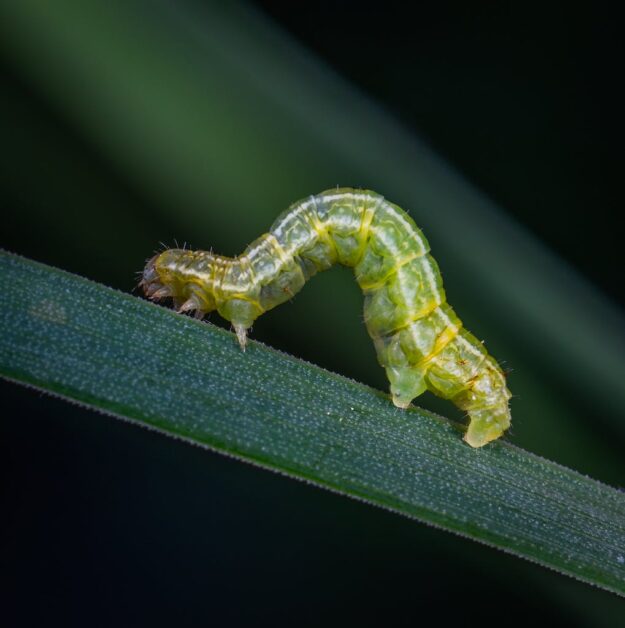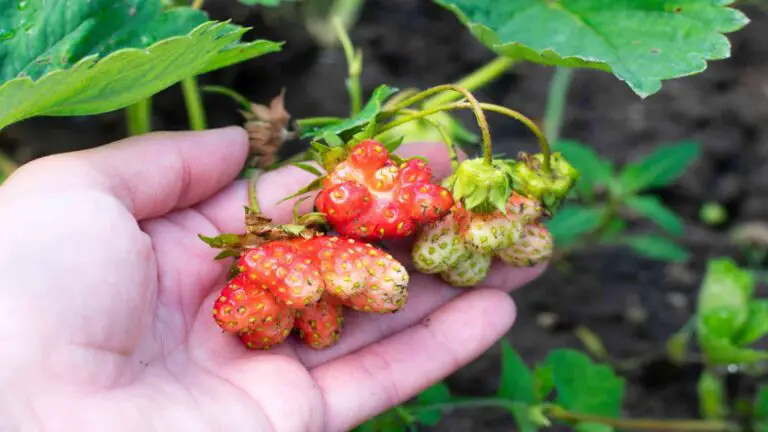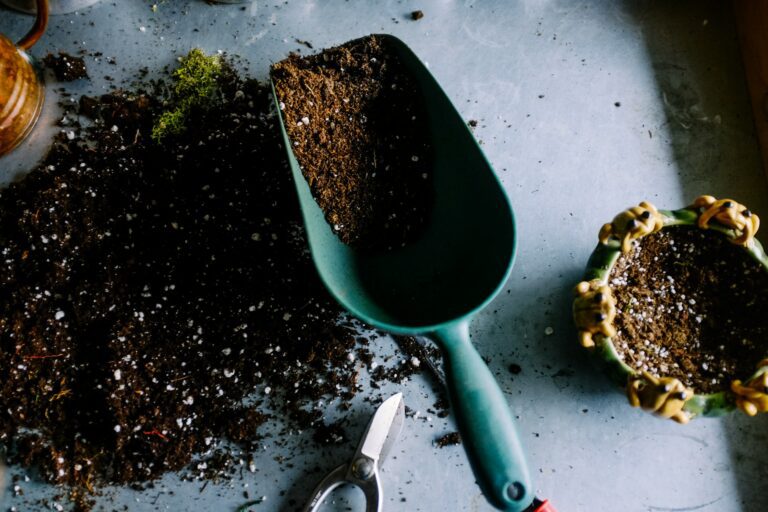Garden Compost Tea: What It Is, How It Works, and How to Make It for Your Plants
Did you know that garden compost tea can supercharge your plants’ growth naturally? This organic elixir, brewed from compost, is packed with beneficial microbes that enhance soil health and boost plant vitality. But what exactly is compost tea, and how does it work its magic? In this guide, we’ll demystify the process, show you how to make it at home, and explain why your garden will love it. Whether you’re a seasoned gardener or a newbie with a green thumb, mastering compost tea can transform your garden. Dive in and discover how to brew this nutrient-rich tea that will take your plants to the next level. Ready to get started? Let’s grow!
Table of Contents
The Benefits of Using Garden Compost Tea for Your Plants
Garden compost tea is a natural and organic solution that can greatly benefit your plants.
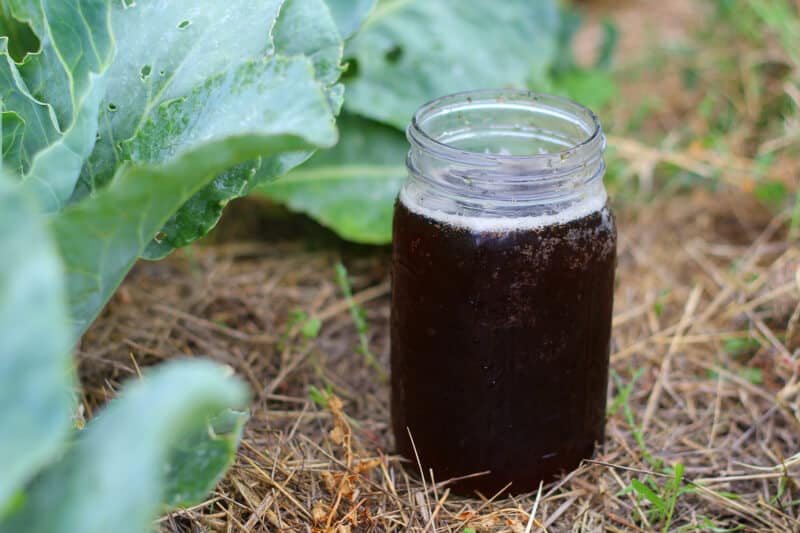
- Improved Soil Fertility:
- Garden compost tea enriches the soil with essential nutrients like nitrogen, phosphorus, and potassium.
- These nutrients provide a balanced and readily available food source for plants, enhancing their growth and productivity.
- Beneficial Microorganisms:
- Compost tea promotes the growth of beneficial microorganisms in the soil.
- These microorganisms break down organic matter, releasing nutrients that become more accessible to plants.
- They also help suppress harmful pathogens, pests, and diseases, creating a healthier growing environment.
By incorporating garden compost tea into your gardening practices, you can enjoy the benefits of improved soil fertility, increased plant vigor, and enhanced plant health. It is an eco-friendly and sustainable solution that not only benefits your plants but also contributes to the overall health and balance of your garden ecosystem. So why not harness the power of garden compost tea and give your plants the nourishment they deserve?
Understanding the Science Behind Garden Compost Tea
Garden compost tea is a powerful tool in the world of gardening, offering numerous benefits to both plants and the surrounding ecosystem. To truly understand the science behind this organic concoction, it is important to delve into its composition and the processes that contribute to its effectiveness.

- Liquid Fertilizer:
- Garden compost tea is made by steeping or brewing compost in water.
- During this process, nutrients and beneficial compounds are extracted from the compost into the water.
- Essential Nutrients:
- Compost tea contains essential nutrients like nitrogen, phosphorus, and potassium.
- These nutrients promote plant growth and overall health.
- Beneficial Microorganisms:
- Bacteria, fungi, and protozoa in compost tea form symbiotic relationships with plants.
- They aid in nutrient uptake, pest control, and disease resistance.
- Soil Improvement:
- Microorganisms in compost tea improve soil structure and fertility.
- Creates an optimal environment for plant root development.
By harnessing the power of these microorganisms, gardeners can enhance the health and productivity of their plants in a natural and sustainable manner.
I recently tried the Organic Earthworm Concentrate from Bloom City, and I must say, I’m impressed. This fertilizer is like magic for my garden. After using it, I noticed a significant improvement in the health and vitality of my plants. They seemed to grow taller, with lusher foliage and more vibrant blooms. It’s incredible how just a simple application of this concentrate can make such a difference in the overall well-being of my garden.
One of the things I appreciate most about this product is its organic nature. Knowing that I’m feeding my plants with natural, earth-friendly ingredients gives me peace of mind. Plus, the fact that it’s derived from earthworm castings means that it’s packed with essential nutrients that plants love. Overall, I highly recommend the Organic Earthworm Concentrate to any gardener looking to give their plants a nutrient boost in a sustainable and environmentally-friendly way.
- Organic Earthworm Castings Concentrate by Bloom City is a nutrient-rich fertilizer that promotes healthy plant growth and improves soil structure.
- The concentrate is easy to use and can be diluted with water to create a compost tea, which can be applied directly to plants or used as a soil drench.
- It is derived from organic earthworm castings, which are rich in essential nutrients such as nitrogen, phosphorus, and potassium, as well as beneficial microorganisms.
- The concentrate helps increase soil fertility, enhance nutrient uptake by plants, and improve soil aeration and water retention.
- It is suitable for use in both indoor and outdoor gardens, including vegetable gardens, flower beds, and container plants.
- Some users may find the initial cost of the product to be higher compared to other fertilizers.
- The concentrate may have a strong odor, which could be unpleasant for some users during application.
- While it is effective in promoting plant growth, results may vary depending on factors such as plant species, soil conditions, and application frequency.
- Overuse of the concentrate may lead to nutrient imbalances or salt buildup in the soil, so it’s important to follow the recommended dosage instructions.
- Availability may be limited in certain regions, making it challenging for some gardeners to purchase locally.
Exploring the Nutritional Value of Garden Compost Tea for Plant Growth
Garden compost tea is a nutrient-rich liquid fertilizer that is derived from compost and is highly beneficial for the growth and development of plants. It is often touted as a natural and organic alternative to synthetic fertilizers, providing plants with essential nutrients in a form that is readily available and easily absorbed. But what is it about compost tea that makes it so nutritionally valuable for plant growth?
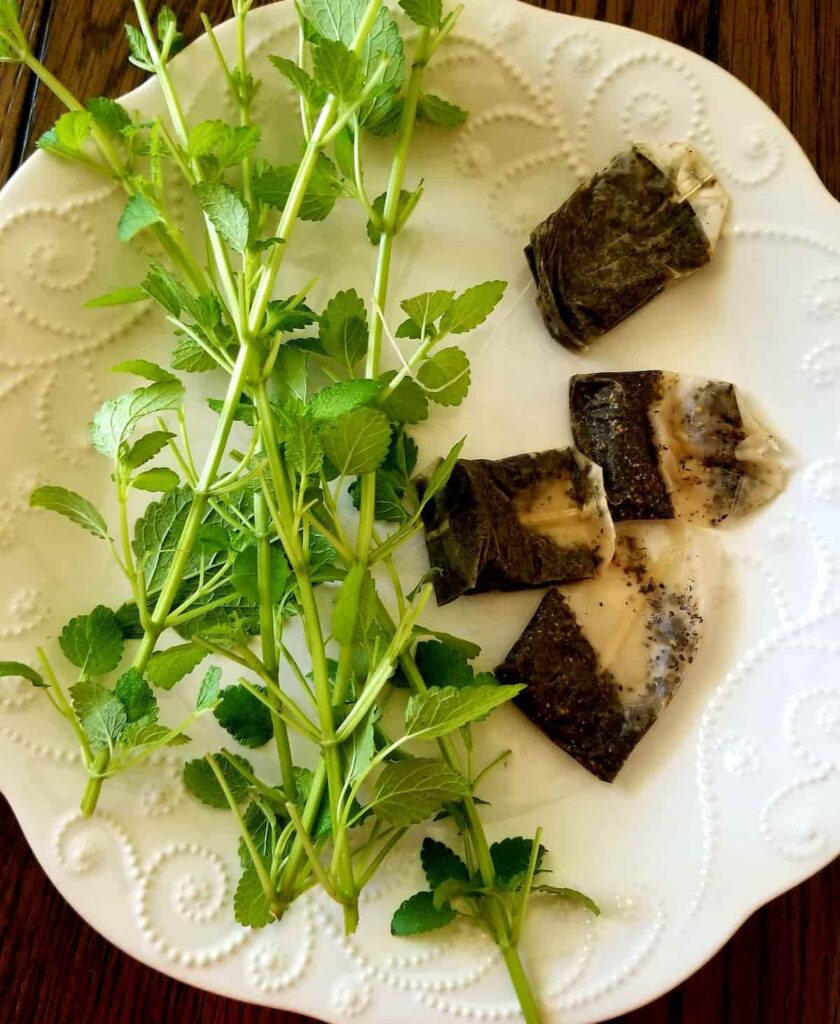
Compost tea contains bacteria, fungi, and protozoa that aid in nutrient cycling and plant health.
These microorganisms break down organic matter, releasing essential nutrients.
Nutrients include macronutrients (nitrogen, phosphorus, potassium) and micronutrients (iron, manganese, zinc).
Organic matter from compost tea improves soil structure and fertility.
Enhances moisture retention, aeration, and beneficial soil organisms.
Acts as a slow-release fertilizer, supporting healthy plant growth.
By incorporating compost tea into your gardening routine, you can ensure that your plants receive the nutrients they need for optimal growth and development. So why not give compost tea a try and reap the benefits of this natural, sustainable, and nutrient-rich fertilizer?
The Role of Microorganisms in Garden Compost Tea and Plant Health
Microorganisms play a vital role in the health of plants and the overall effectiveness of garden compost tea. The presence of beneficial microorganisms in the tea is what sets it apart from other fertilizers or soil amendments. These microorganisms, such as bacteria, fungi, and protozoa, contribute to the breakdown of organic matter in the compost tea, producing valuable nutrients that can be readily absorbed by plants.

Bacteria:
- Essential for decomposition.
- Convert complex organic compounds into simpler forms for plant use.
- Release enzymes that break down proteins, carbohydrates, and fats, making nutrients easily absorbed by plants.
- Some bacteria fix nitrogen from the air, enhancing plant growth.
Fungi:
- Decompose tougher materials like wood chips and stems.
- Break down materials into smaller particles for easier plant utilization.
- Form symbiotic relationships with plant roots, creating mycorrhizae that improve nutrient uptake and root development.
Protozoa:
- Consume bacteria and release nutrients through waste products, making them available to plants.
- Help control bacteria populations, establishing a balanced microbial community in the soil.
Beneficial Microorganisms in Garden Compost Tea:
- Provide essential nutrients for plants.
- Protect plants from harmful pathogens by outcompeting them for resources.
- Produce substances that suppress the growth of harmful microorganisms, enhancing plant health.
In order to maximize the benefits of microorganisms in garden compost tea, it is essential to understand the ideal conditions for their growth and activity. Factors such as temperature, aeration, and moisture levels can significantly impact the population of beneficial microorganisms. By providing optimal conditions, gardeners can ensure the highest quality compost tea that will promote vibrant plant growth and overall plant health.
Different Types of Compost and Their Suitability for Making Garden Compost Tea
When it comes to making garden compost tea, the type of compost you use plays a crucial role in determining its suitability and effectiveness. Different types of compost have varying nutrient compositions and microbial populations, which can affect the quality of the tea produced.

Plant-Based Compost:
- Made from a mixture of plant materials (leaves, grass clippings, vegetable scraps).
- Has a balanced nutrient profile suitable for a wide range of plants.
- Contains a diverse community of beneficial microorganisms that enhance soil fertility and plant health.
- Requires proper composting to eliminate potential pathogens and weed seeds.
Manure-Based Compost:
- Made from animal manure (cow, horse, chicken manure).
- Rich in essential nutrients (nitrogen, phosphorus, potassium) for plant growth.
- Contains beneficial microorganisms that aid in nutrient cycling and disease suppression.
- High in salts and may require aging or additional composting to reduce the risk of nutrient imbalances and pathogen contamination.
By understanding the different types of composts and their suitability for making garden compost tea, you can make informed decisions when selecting the right compost for your plants. Whether you choose plant-based or manure-based compost, ensuring that it is of high quality and properly composted will help maximize the benefits of the tea for your plants.
Selecting the Right Ingredients for Your Garden Compost Tea Recipe
Selecting the right ingredients for your garden compost tea recipe is crucial in ensuring its effectiveness and providing your plants with the necessary nutrients. When choosing the ingredients, it is important to consider their nutrient content, microbial activity, and the specific needs of your plants.
- Organic Matter: The foundation of compost tea. Use materials like compost, aged manure, and straw. These provide essential nutrients (nitrogen, phosphorus, potassium) and create a habitat for beneficial microorganisms.
- Supplementary Ingredients:
- Worm Castings: Rich in nutrients and beneficial microbes.
- Kelp Meal: Adds trace minerals and growth-promoting hormones.
- Fish Emulsion: Provides additional nutrients and supports plant health.
- Brewing Process: Combine organic matter and supplementary ingredients in water. Aerate the mixture to encourage microbial growth.
- Application: Apply the brewed compost tea to soil or as a foliar spray to nourish plants.
| Selecting Ingredients for Compost Tea Recipe | Key Ingredients and Considerations |
|---|---|
| 1. Compost | – High-Quality Compost: Use well-aged compost rich in organic matter. |
| – Diverse Materials: Include a variety of plant materials for balanced nutrients. | |
| 2. Aerated Water | – Dechlorinated Water: Use dechlorinated water to avoid harming beneficial microbes. |
| – Aeration Equipment: Employ an air pump or bubbling system for oxygenation. | |
| 3. Molasses or Sugar | – Microbial Food Source: Provides a food source for beneficial microorganisms. |
| – Balanced Addition: Use in moderation to avoid overfeeding microbes. | |
| 4. Sea Kelp or Seaweed Extract | – Trace Minerals: Adds essential trace minerals and promotes overall plant health. |
| – Plant Growth Hormones: Contains natural hormones beneficial for plant growth. | |
| 5. Fish Emulsion or Fish Hydrolysate | – Source of Nitrogen: Provides a readily available nitrogen source for plants. |
| – Micronutrients: Contains beneficial micronutrients essential for plant development. | |
| 6. Epsom Salt (Magnesium Sulfate) | – Magnesium Supplement: Adds magnesium for improved chlorophyll production. |
| – Avoid Overuse: Use sparingly to prevent excessive magnesium levels. | |
| 7. Aloe Vera Gel (Optional) | – Plant Health Booster: Aloe vera may enhance plant immunity and stress tolerance. |
| – Compatibility Check: Ensure compatibility with other ingredients. | |
| 8. pH Adjustment (if needed) | – pH Testing: Check and adjust pH if necessary to optimize microbial activity. |
| – Lemon Juice or Vinegar: Use natural pH adjusters if needed. | |
| 9. Strainer or Cheesecloth | – Filtering: Strain the tea to remove solid particles before application. |
| – Avoid Clogging: Prevent clogging of sprayers or irrigation systems. |
Overall, selecting the right ingredients for your garden compost tea recipe is an essential step in maximizing its benefits for your plants. By considering nutrient content, microbial activity, and the specific needs of your plants, you can create a well-rounded compost tea that promotes healthy growth and improves overall plant vigor. However, it is crucial to remember that the effectiveness of a compost tea recipe also relies on the brewing process, which will be discussed in later sections. So, let’s delve into the equipment and tools needed for making garden compost tea.
The Equipment and Tools Needed for Making Garden Compost Tea
To successfully make garden compost tea, you will need a few essential pieces of equipment and tools. These items will ensure that your compost tea brewing process is efficient and effective.
- Container or Compost Tea Brewer: Choose a large container that can hold a significant volume of water. Look for one with a spigot or pump for easy dispensing of the finished compost tea.
- Aeration Tools:
- Air Pump: Use an air pump with air stones to supply oxygen to the brewing mixture. This promotes the growth of beneficial microorganisms.
- Mesh Bag or Sock: Essential for containing compost and preventing clogs in the pump or sprayer. Opt for a durable, reusable option.
- Application Tool: Use a sprayer or watering can with a fine-mist nozzle to evenly apply the compost tea to your plants’ foliage and roots.
With the proper equipment and tools in hand, you will be well-equipped to embark on the journey of making high-quality garden compost tea. Remember to follow the instructions provided by the manufacturer for each piece of equipment, and always prioritize safety and cleanliness throughout the process.
I recently purchased the FANHAO watering can with a fine mist nozzle, and it has quickly become an essential tool in my gardening routine. The ergonomic design makes it comfortable to hold and use for extended periods without causing strain on my hands or wrists. The fine mist nozzle provides a gentle and even spray, perfect for delicate seedlings and young plants, preventing soil erosion and overwatering. It’s also versatile enough to handle various watering needs, from watering indoor plants to outdoor garden beds.
Additionally, the build quality of this watering can is impressive. It’s constructed from durable materials that seem like they will last for many seasons to come. The large capacity allows me to water multiple plants without the need for constant refills, saving me time and effort during my gardening sessions. Overall, I’m highly satisfied with my purchase and would recommend the FANHAO watering can to any gardener looking for a reliable and efficient watering solution.

✅ Ergonomic design: Its ergonomic handle and lightweight construction make it comfortable to hold and easy to use, reducing hand fatigue during extended watering sessions.
✅ Fine mist nozzle: The fine mist nozzle ensures gentle watering, perfect for delicate plants and seedlings, preventing soil erosion and water wastage.
✅ Durable build: Made from high-quality materials, this watering can is sturdy and durable, ensuring long-term use in the garden.
❌ Plastic construction: While durable, the plastic construction may not withstand rough handling or extreme temperatures as well as metal alternatives.
❌ Water pressure sensitivity: Users have reported that the water pressure required to operate the spray patterns effectively can vary, leading to inconsistent watering experiences.
❌ Nozzle clogging: Occasional nozzle clogging may occur, requiring maintenance to ensure continuous and even water flow.
Step-by-Step Guide: How to Make Garden Compost Tea at Home
Making garden compost tea at home is a simple and rewarding process that can provide numerous benefits for your plants. By following a few easy steps, you can create a nutrient-rich liquid fertilizer that promotes plant growth and enhances overall plant health.
- Gather your compost.
- Select a suitable container, such as a 5-gallon bucket.
- Fill the bucket with water, leaving a few inches of space at the top.
- Add well-aged compost to the water, aiming for a 1:4 or 1:5 ratio of compost to water.
- Stir the mixture thoroughly to evenly distribute the compost.
Factors to Consider When Brewing Garden Compost Tea
When brewing garden compost tea, there are several important factors to consider in order to maximize its effectiveness and ensure the health of your plants.

- Quality of Compost:
- Use well-decomposed compost rich in organic matter.
- Ensure compost is free from contaminants.
- Select compost based on the specific nutrient needs and microbiology suitable for your plants.
- Brewing Method and Equipment:
- Brewing Time: Follow recommended brewing times for optimal results.
- Water Temperature: Maintain appropriate water temperature to protect beneficial microorganisms.
- Aeration:
- Use aeration devices or stir regularly.
- Ensure tea remains oxygenated to prevent anaerobic bacteria growth and promote beneficial aerobic microorganisms.
Additionally, brewing times can vary depending on the specific recipe and desired outcome, so it is important to follow the recommended guidelines for your particular compost tea recipe.
Applying Garden Compost Tea to Your Plants: Best Practices and Timing
Applying garden compost tea to your plants is an important step in maximizing its benefits and ensuring optimal plant health. To achieve the best results, it’s crucial to follow a few best practices and consider the timing of application.
- Hydrate Plants: Water your plants thoroughly before applying compost tea. Moist soil allows the tea to penetrate effectively and aids nutrient absorption by plant roots.
- Timing:
- Apply in the early morning or late afternoon when temperatures are cooler.
- Avoid application during the hottest part of the day to prevent foliage scorching.
By following these best practices and considering the timing of application, you can ensure that your plants reap the full benefits of garden compost tea. However, it’s important to note that different plants may have varying needs, so it’s always a good idea to consult specific guidelines for each type of plant you’re working with.
Troubleshooting Common Issues with Garden Compost Tea
When it comes to using garden compost tea, there may be some common issues that gardeners encounter along the way.
Cause: Improper aeration during brewing or microbial imbalance.
Solution:Ensure adequate aeration using a reliable brewing system (air pump and air stones).
Maintain a proper balance of ingredients (carbon-rich and nitrogen-rich materials).
Cause: Warm and moist brewing conditions.
Solution:Monitor temperature and humidity levels during brewing.
Strain or filter the compost tea to remove potential fungal spores.
Maximizing the Benefits of Garden Compost Tea for Specific Plant Types
When it comes to maximizing the benefits of garden compost tea, it is essential to understand that different plant types have varying nutritional requirements. Tailoring your compost tea recipe to suit specific plants can help enhance their growth and overall health.
- Leafy Greens (e.g., lettuce, spinach):
- Thrive with nitrogen-rich compost tea.
- Nitrogen promotes leafy growth and vibrant green color.
- Fruit-Bearing Plants (e.g., tomatoes, peppers):
- Benefit from compost tea with higher phosphorus content.
- Phosphorus promotes flowering and fruit development, leading to a bountiful harvest.
- Incorporating Micronutrients:
- Use compostable materials with high trace element content (e.g., seaweed, kelp).
- Supply essential micronutrients for plant growth and optimal development.
- Tailoring Compost Tea Recipes:
- Adjust the compost tea recipe to meet specific nutritional needs of different plant types.
- Maximize the benefits of garden compost tea to boost plant health and productivity.
Case Studies: Real-Life Examples of Successful Garden Compost Tea Applications
Case Study 1: Successful Growth of Tomatoes with Garden Compost Tea

- Conducted by the Department of Horticulture at a renowned agricultural university.
- Two groups of tomato plants grown under identical conditions.
- Variable: One group treated with garden compost tea, the other not.
- Results:
- Enhanced Growth: Tomato plants treated with compost tea showed improved growth.
- Increased Fruit Production: Treated plants produced more fruits.
- Improved Overall Health: Treated plants had better health compared to the control group.
- Nutrient Balance: Compost tea provided an optimal balance of nutrients.
- Root Development: Stimulated root development and improved nutrient uptake.
- Robust Growth and Yield: Contributed to the robust growth and abundant yield of treated tomato plants.
Case Study 2: Flourishing Roses with the Power of Garden Compost Tea
- Conducted by a prominent rose enthusiast.
- Setup: Two sets of rose plants cultivated under similar conditions.
- Variable: One group received regular watering with garden compost tea; the other group received conventional fertilizers.
- Results:
- Overall Plant Health: Roses treated with compost tea showed significant improvement.
- Vibrant Floral Colors: Treated roses displayed more vibrant colors.
- Disease Resistance: Increased resistance to diseases in compost tea-treated roses.
- Beneficial Microorganisms: Enhanced natural defenses and promoted a healthier root system.
- Stronger, More Resilient Plants: Resulted in stronger and more resilient rose plants compared to those treated with conventional fertilizers.
These case studies serve as real-life examples of the potential of garden compost tea to transform the growth and vitality of plants. By harnessing the power of natural ingredients and the diverse microbial community found in compost, gardeners can achieve remarkable results in their gardening endeavors.
Watch more in the given video:
FAQ
How often should I apply garden compost tea to my plants?
The frequency of applying garden compost tea depends on various factors such as plant type, soil condition, and weather. It is generally recommended to apply it every 2-4 weeks during the growing season.
Can I use garden compost tea on indoor plants?
Yes, garden compost tea can be used on indoor plants as well. Just make sure to adjust the strength of the tea according to the plant’s needs and follow the recommended application guidelines.
Can I store garden compost tea for future use?
It is not advisable to store garden compost tea for long periods as the beneficial microorganisms may lose their effectiveness over time. It is best to use the tea within 24-48 hours of brewing for maximum benefits.
Can I use compost from a non-organic source to make garden compost tea?
While it is recommended to use organic compost for making garden compost tea, compost from non-organic sources can be used as long as it does not contain any harmful chemicals or pesticides.
Is garden compost tea suitable for all types of plants?
Garden compost tea is generally beneficial for most plants, including vegetables, fruits, flowers, and shrubs. However, it is always recommended to research the specific needs of your plants before applying garden compost tea.
Can garden compost tea be used as a foliar spray?
Yes, garden compost tea can be used as a foliar spray by diluting it with water. This can help the plants absorb the nutrients directly through their leaves, promoting healthy growth.
How long does it take for garden compost tea to show noticeable results?
The time it takes for garden compost tea to show noticeable results can vary depending on various factors such as plant health, soil condition, and overall care. In general, you can expect to see improvements within a few weeks of regular application.
Can garden compost tea be used as a pest control method?
While garden compost tea is primarily used as a fertilizer and soil conditioner, it may have some insect-repellent properties. However, it is not a substitute for dedicated pest control methods and should not be solely relied upon for pest management.
Can I use leftover garden compost tea on other household plants?
Yes, any leftover garden compost tea can be safely used on other household plants, as long as the tea has not been stored for an extended period. Dilute it as necessary and apply it to the plants following the recommended guidelines.
Is garden compost tea safe for edible plants?
Yes, garden compost tea is safe for edible plants when made from organic compost and applied according to the recommended guidelines. However, it is always important to wash the edible parts of the plants before consumption.

Studied Agricultural Engineering-Plant Protection at University of California, Davis.
Head of Content writing team at Southelmontehydroponics.com




